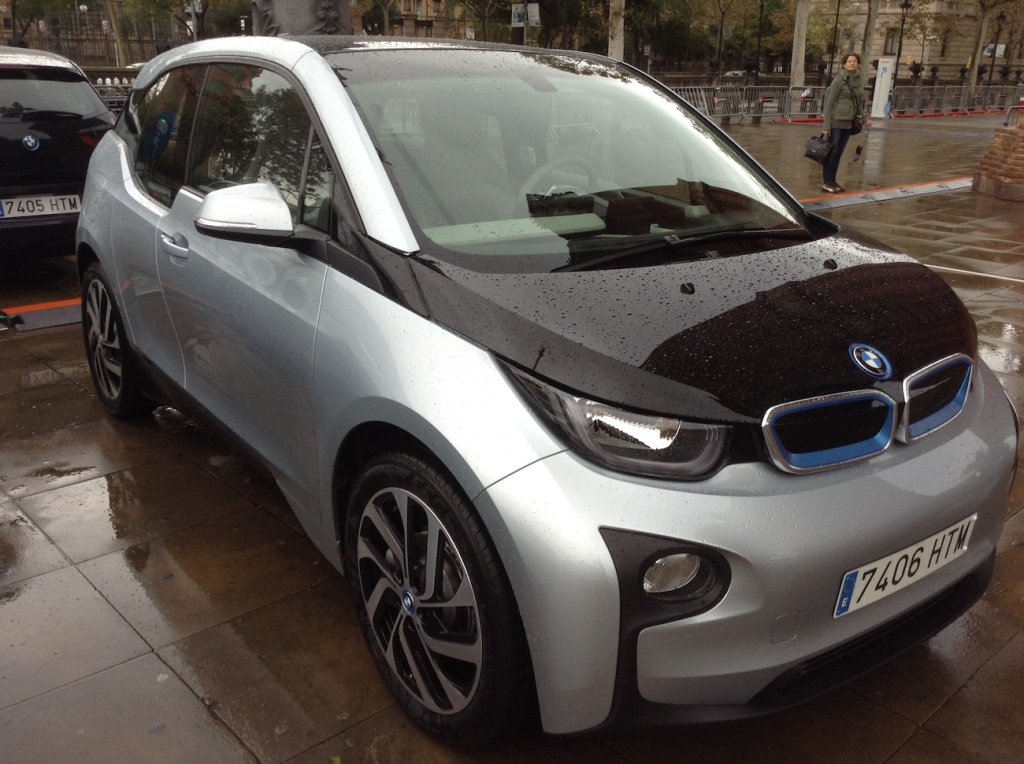
This summer, two German rivals whipped up their own take on electric vehicles. In one corner there’s the BMW i3, a purpose-built electric vehicle with an optional gas-powered range extender. In the other corner is the Mercedes B-Class Electric Drive, which uses a shared platform but a drivetrain and battery pack from the one and only Tesla Motors.
Car & Driver pitted the two electric cars against each other in trendy West L.A., and they came away with the impression that one company definitely tried harder with its electric ambitions.
The Mercedes B-Class is, as C&D notes, about as plain as a car gets. While it zips from 0 to 60 MPH in just 6.8 seconds, it weighs 3,935-lbs compared to the 2,853-lbs of the carbon fiber and aluminum BMW i3. That lighter weight translated to a 6.5 second 0 to 60 MPH run, and a 15.3 second sprint down the quarter-mile, compared to 15.6 seconds for the B-Class. The BMW was also marginally better at the lateral-g skidpad and slalom test thanks to its light weight, low center of gravity, and 51.8% rear-weight bias.
The BMW i3 is rated at 61 miles per charge, and C&D came close to that with an estimated 79 miles of driving per charge, which the B-Class beat with 84-miles per charge. However, the i3 felt better, looked better, and got more attention when it came down to it. The B-Class, meanwhile, comes across as a more half-baked attempt to enter the electric car field.
But as Tesla has shown, a purpose-built electric car can take better advantage of the inherent benefits of an EV drivetrain, and not surprisingly, Car & Driver crowned the BMW i3 as king of this two-car segment.
Source: Cleantechnica.com







